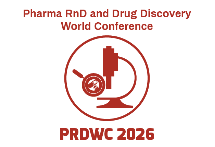Scientific Sessions
Clinical Trials
Clinical trials are needed to evaluate new human drugs or treatments' safety, efficacy, and dosage. These trials are conducted in several stages, beginning with small trials to assess safety and progressing to larger trials to demonstrate efficacy and monitor outcomes. Clinical trials provide important data that support regulation bodies such as the FDA to make decisions about whether a drug is ready for approval. Data generated in clinical trials provide real-world insight into the effects of a drug in a specific patient population and highlight potential benefits, risks, and unique responses to treatments. It is critical to understanding how treatments work in different groups of patients.
The Pharma R&D and Drug Discovery World Congress (PRDWC) serves as a focal point for discussions on clinical trials and case studies, bringing together experts to share insights on trial design, data analysis, and regulatory considerations. Entrepreneurs can meet challenges and improve the efficiency of clinical trials.

